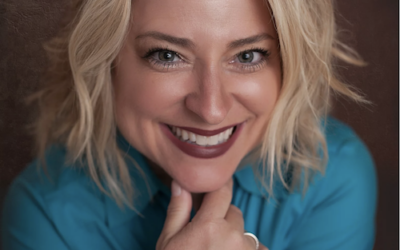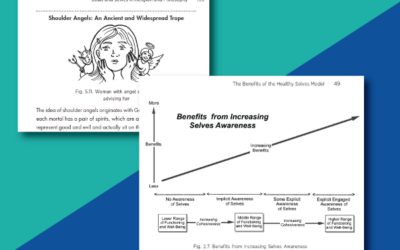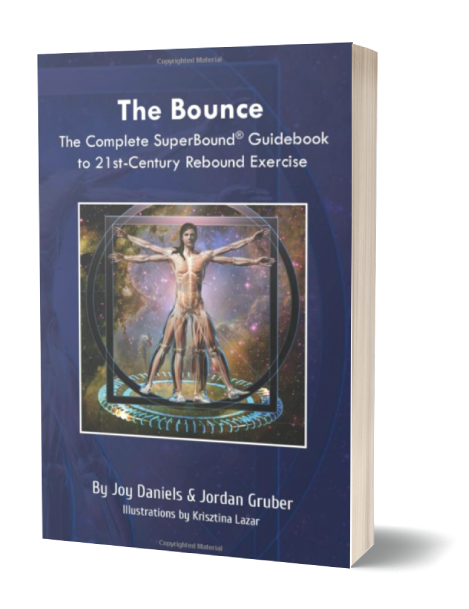Have you ever argued with yourself?
Have you ever been by yourself or with your old friends and done something truly wild and crazy—something you would never do around your parents, children, co-workers, or boss?
Have you ever been so stressed that you did something you told yourself you would never do?
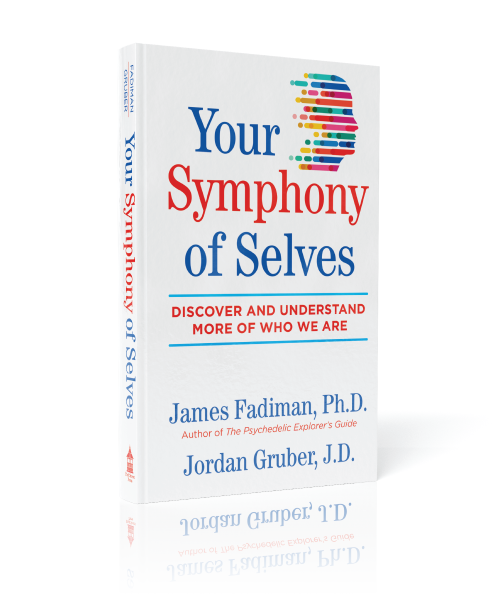
“A fascinating new book”
—Michael Pollan
All of us, including the healthiest and most successful of people, are comprised of multiple selves. Honoring each of these selves—in ourselves and in others—is a key to improved ways of living, loving, and working.
Groundbreaking Insight into the Dynamic Nature of Personality
James Fadiman and Jordan Gruber show that each of us consists of distinct, autonomous, and inherently valuable “selves.” Explaining that it is normal to have multiple selves, the authors offer insights into why we all are inconsistent at times, allowing us to become more accepting of the different parts of who we and other people are. They explore, through extensive reviews, how the concept of healthy multiple selves has been supported in science, popular culture, spirituality, philosophy, art, literature, and ancient traditions and cite well-known people, including David Bowie and Beyoncé, who describe accessing another self at a pivotal point in their lives to resolve a pressing challenge.
Instead of seeing the existence of many selves as a flaw or pathology, the authors reveal that the healthiest people, mentally and emotionally, are those who have naturally learned to appreciate and work in harmony with their own symphony of selves. They identify the “Single Self Assumption” as the prime reason why the benefits of having multiple selves has been ignored. This assumption holds that we each are or ought to be a single consistent self, yet we all recognize, in reality, that we are different in different situations.
Offering a pragmatic approach, the authors show how you can prepare for situations by shifting to the appropriate self, rather than being “switched” or “triggered” into a sub-optimal part of who you are. They also show how recognizing your selves provides increased access to skills, talent, and creativity; enhanced energy; and improved healing and pain management. Appreciating your diverse selves will give you more empathy toward yourself and others. By harmonizing your symphony of selves, you can learn to be “in the right mind at the right time” more often.
FAQs About Your Symphony of Selves
Q. Why "Selves"? Are there other terms that mean the same or could have been used?
A. We list 70 terms that mean roughly the same thing, including “selves,” “minds,” “subpersonalities,” “parts,” and more. When you read the book, you’ll see why we prefer the term “selves.” We also describe and discuss other terms that have been used by a wide variety of psychologist, artists, and others.
Q. Does the book focus on mental illness or the mentally ill?
A. Our book is about everyone, as all people are comprised of selves—the happiest, healthiest, and most successful, as well as those who are disturbed and unable to function. We focus on “healthy multiplicity,” i.e., seeing and working with human beings the way they actually are or can be. Those diagnosed with MPD, DID or other labeled disorders may have terrible problems with one or more selves (and should seek help). But having more than one self is in and of itself not a sign of mental illness.
Q. Do we go beyond restating existing approaches to multiplicity (like ISF)?
A. We describe a wide variety approaches to multiplicity, and agree with many ideas from IFS, Psychosynthesis, Voice Dialogue, etc. But we differ from most existing systems in terms of the necessity and centrality of having a single ultimate essential Self.
Q. Is this a self-help book? Do you offer techniques, tools, and practices?
A. This is not a self-help book per se, but, along with a great deal else, we do gather together many metaphors, approaches, tools, and techniques for more effectively working with your own constellation of selves. Our view is that “awareness heals,” and that when you become clear that you and everyone else in your life has selves, life makes more sense and works better.
Order Your Symphony of Selves Today!
From The Book | R.I.P David Bowie, Master of Selves Changes
How The Single Self Assumption Limits Optimal Human Functioning
The difficult part—the problem we all face—is that this way of looking at things is so rarely discussed that most people simply are not aware of it. A veil seems to exist that prevents us from directly experiencing or considering the idea that we are—or can be—a collection of harmoni-ous healthy selves. (Going forward, we will refer to the “healthy selves” or “healthy normal selves” idea, worldview, or perspective.) This barrier or veil follows directly from the unexamined pervasiveness of what we call the “Single Self Assumption,” which, in its simplest form, is the idea that each of us is a single unified self.
As a result of the pervasiveness of the Single Self Assumption, the reality of experiencing ourselves as a healthy multiplicity is seldom considered. If it is brought up, it may be laughed away or simply dis-missed. But, when we become aware of, question, and step beyond the Single Self Assumption, our worldview shifts. This alternative posits that greater health, functioning, and satisfaction come to people who understand and make practical good use of the recognition that selves are real. The new assumption is that it is normal to have more than one self. Perhaps more importantly, optimal functioning and well-being necessitates acknowledging and working with all of our selves. Those who do this demonstrate increasing congruence among their words, behavior, and plans. They are seen by others as being coherent in their interactions and communications. They are also kinder and more compassionate.
Acknowledging and working with selves thus enables us to be more congruent, coherent, and, overall, what we describe as being more cohesive. Simply, our selves “hang together” in a well-integrated way. The more cohesive our selves are, the better our real-world functioning (what we do and how we do it) and our interactions and relationships (how we are felt, seen, and experienced). To begin our discussion, here is an example of someone famous—literally a major rock star—who made effective use of his selves.
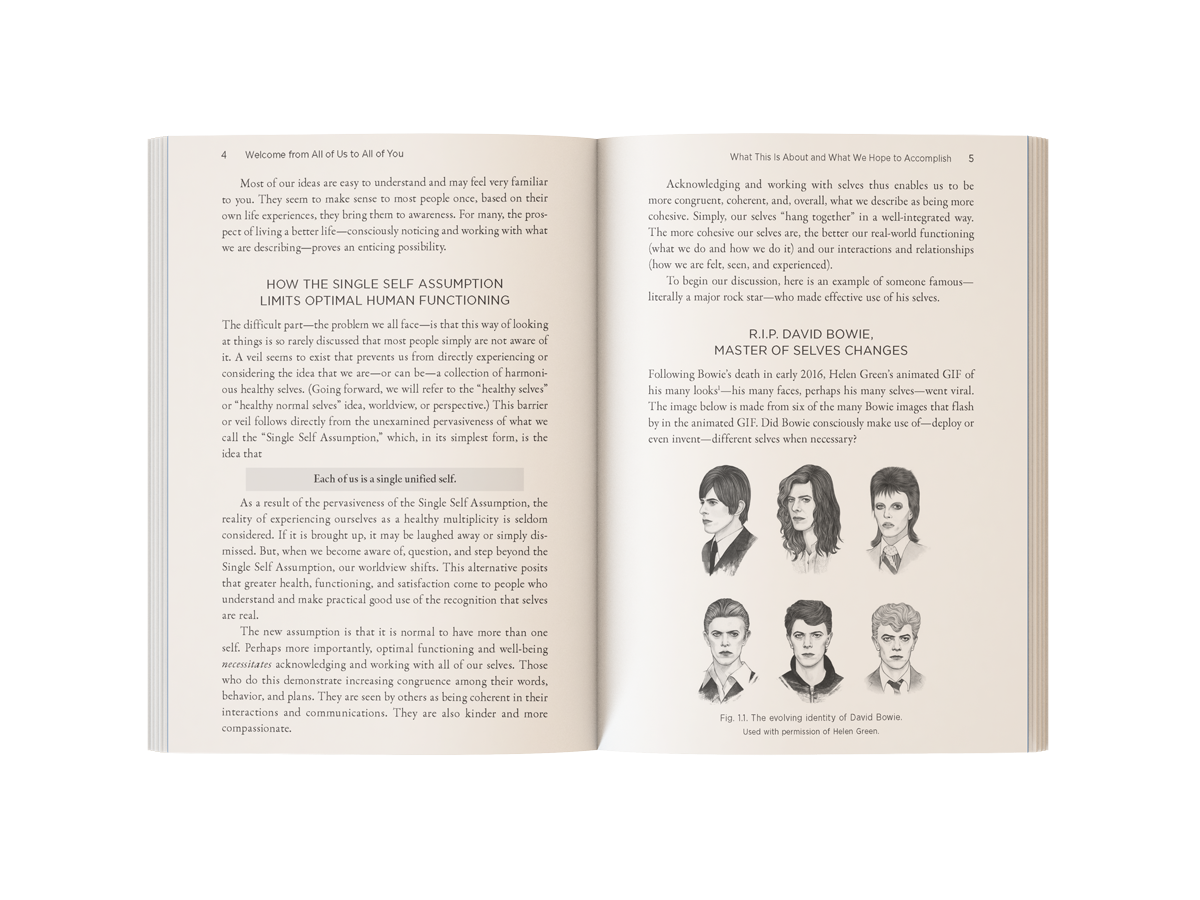
*Graphic Credit: Helen Green
R.I.P David Bowie, Master of Selves Changes
Following Bowie’s death in early 2016, Helen Green’s animated GIF of his many looks—his many faces, perhaps his many selves—went viral. The image below is made from six of the many Bowie images that flash by in the animated GIF. Did Bowie consciously make use of—deploy or even invent—different selves when necessary?
Bowie himself said, “Even though I was very shy, I found I could get onstage if I had a new identity.” After reviewing his troubled early years, British psychologist Oliver James wrote, “What seems to have been the trigger for his shift from distressed and tortured to emotionally healthy, was his adoption of personas in his musical career.”
Referring to Bowie’s album The Rise and Fall of Ziggy Stardust and the Spiders from Mars, James continues, “I believe the album’s lyrics were an attempt by Bowie to create a dialogue between different parts of himself. . . . Bowie’s legacy is the idea that we have many different selves and if we can only dare to confront them, we can choose who is to host our life at any one moment.”
“This masterful, comprehensive exploration of the diversity within us is both fascinating and useful. With grace and erudition, the authors explore the nooks and crannies of our minds—and in the variety of ‘selves’ they find there is, paradoxically, a profound and healing sense of wholeness and freedom.”
—Rick Hanson, Ph.D., author of Neurodharma
About the Authors
James Fadiman, Ph.D.
James Fadiman, Ph.D., did his undergraduate work at Harvard and his graduate work at Stanford, doing research with the Harvard Group, the West Coast Research Group in Menlo Park, and Ken Kesey. A former president of the Institute of Noetic Sciences and a professor of psychology, he taught at the Institute of Transpersonal Psychology, now Sofia University, which he helped found in 1975. An international conference presenter, workshop leader, management consultant, and author of several books and textbooks, he lives in Menlo Park, California, with his filmmaker wife, Dorothy.
Jordan, J.D.
Jordan Gruber, J.D., Practical Wordsmith and Renaissance Writer, collaborative writer, ghost writer, editor, and coach, has forged and sculpted authoritative volumes in forensic law, financial services, psychology, and health and wellness. A graduate of Binghamton University and the University of Virginia School of Law, he founded the Enlightenment.Com website and is now a leading advocate of rebound exercise through his co-authored book, The Bounce. He lives in Menlo Park, California, with his wife and family.
*Credit: Tom Upton, PhotoTrainer
Our deepest apologies to Tom Upton, Phototrainer.com, to whom proper credit was not given for the pictures of the co-authors on the rear cover.
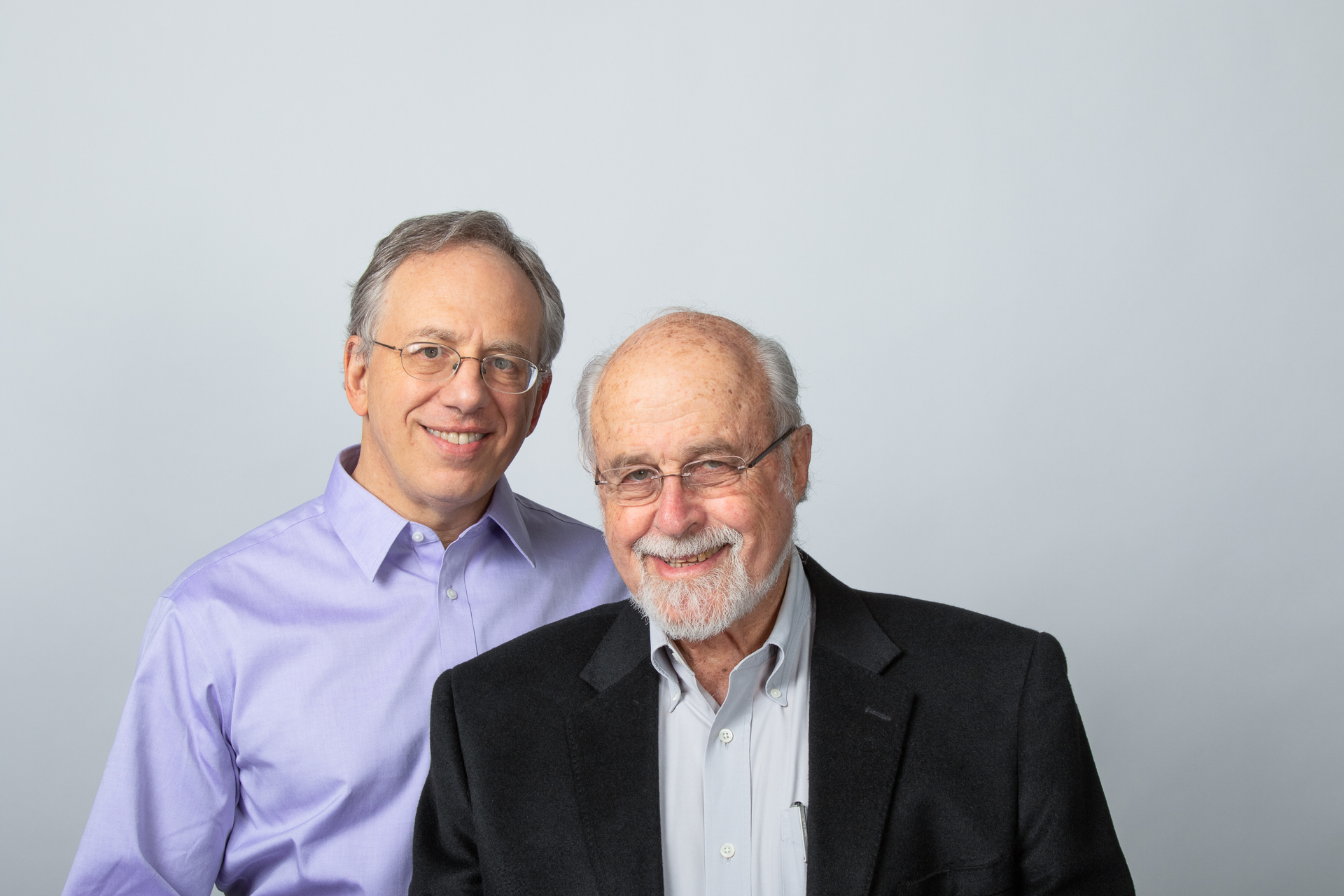
About the Authors
James Fadiman, Ph.D.
James Fadiman, Ph.D., did his undergraduate work at Harvard and his graduate work at Stanford, doing research with the Harvard Group, the West Coast Research Group in Menlo Park, and Ken Kesey. A former president of the Institute of Noetic Sciences and a professor of psychology, he taught at the Institute of Transpersonal Psychology, now Sofia University, which he helped found in 1975. An international conference presenter, workshop leader, management consultant, and author of several books and textbooks, he lives in Menlo Park, California, with his filmmaker wife, Dorothy.
Jordan, J.D.
Jordan Gruber, J.D., Practical Wordsmith and Renaissance Writer, collaborative writer, ghost writer, editor, and coach, has forged and sculpted authoritative volumes in forensic law, financial services, psychology, and health and wellness. A graduate of Binghamton University and the University of Virginia School of Law, he founded the Enlightenment.Com website and is now a leading advocate of rebound exercise through his co-authored book, The Bounce. He lives in Menlo Park, California, with his wife and family.
*Credit: Tom Upton, PhotoTrainer
Our deepest apologies to Tom Upton, Phototrainer.com, to whom proper credit was not given for the pictures of the co-authors on the rear cover.
More Praise
“Psychology professor Fadiman (The Psychedelic Explorer’s Guide) and lawyer Gruber systematically explore the idea that all humans comprise multiple selves in this engaging yet dense work….their efforts to reframe and destigmatize the idea of multiple selves will appeal to general readers interested in the nature of human behavior.”
—Publishers Weekly
“A game-changer for how we think about ourselves, this book expands our psychic interior in new, but once revealed, obvious dimensions. Who wants to be a mere single self when there is so much more depth and nuance to honoring our natural multiplicity? In a world where plurality is the leading edge of evolution, having many selves is a necessity rather than a drawback. Kudos to the authors for their diligent research, original thinking, and courageous pioneering that changes the foundational assumptions of modern psychology to more closely resemble who we truly are. ”
—Anodea Judith, Ph.D., author of Eastern Body, Western Mind; Charge and the Energy Body; and Wheels of Light
“A tour-de-force on the multiple manifestations—scientifically, artistically, religiously, and culturally—of the multiple persons and personalities each one of us inhabit. No matter how skeptical your point of view before you read this book, it will make you think, and you will take it seriously. ”
—Ari Mark Cartun, Rabbi Emeritus, co-author of the forthcoming Mindware for a Godwrestler: Jewish Thought in the Age of Thinking Machines

